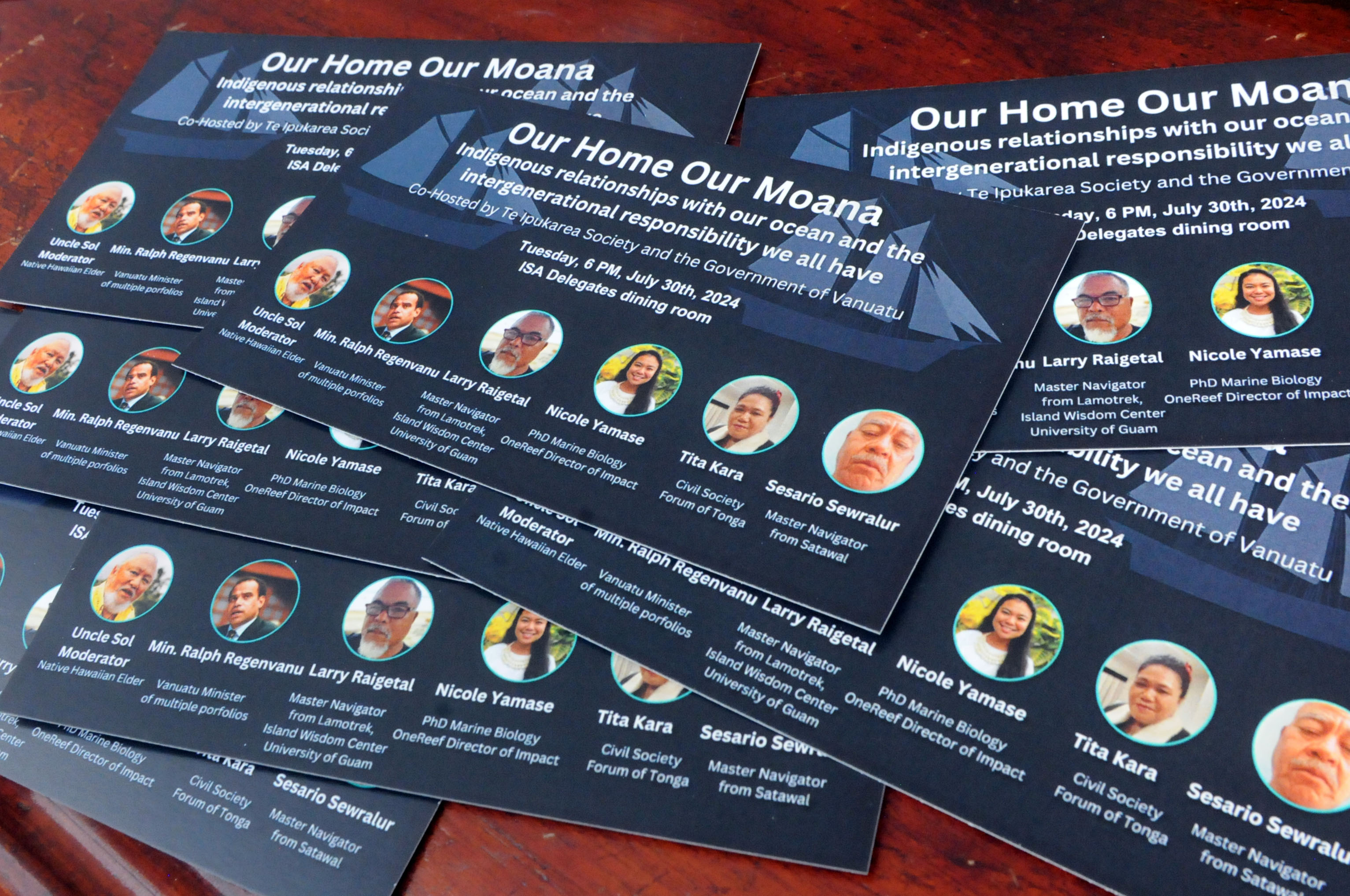Te Ipukarea Society: Unveiling The Mysteries Of Rare Seabirds

Table of Contents
The Mission of Te Ipukarea Society
Te Ipukarea Society's mission is to protect the unique avifauna of the Cook Islands, focusing on the most vulnerable and rare seabird populations. Their efforts extend beyond mere observation; they are deeply committed to tangible conservation and impactful research.
Conservation Efforts
Te Ipukarea Society employs a multi-pronged approach to seabird conservation, combining on-the-ground action with strategic planning. Their efforts directly contribute to Pacific seabird research and inform global conservation strategies.
- Habitat Protection: The Society works tirelessly to protect and restore vital seabird nesting habitats, combating threats like invasive species and habitat degradation. They have successfully secured protected areas on several key islands, resulting in a measurable increase in breeding populations.
- Anti-Predation Strategies: Introduced predators like rats and cats pose a significant threat to seabird chicks. Te Ipukarea Society implements effective eradication programs and utilizes predator-control methods to protect vulnerable nesting colonies. For example, their successful rat eradication project on [Island Name] led to a 30% increase in [Species Name] chick survival rates.
- Population Monitoring: Through rigorous monitoring programs, the Society tracks population trends, identifies threats, and assesses the effectiveness of conservation interventions. This data informs their adaptive management strategies, allowing for targeted and impactful actions.
Research and Scientific Studies
The scientific arm of Te Ipukarea Society is equally vital. Their research provides critical insights into the biology and ecology of rare seabirds, informing best practices for conservation.
- Breeding Patterns: Detailed studies on breeding cycles, nesting behaviors, and reproductive success rates are providing valuable data on the breeding ecology of several endangered species.
- Migration Routes: Utilizing satellite tracking technology, the Society is mapping migration routes and identifying key stopover sites, crucial for understanding and protecting these birds throughout their life cycles.
- Genetic Diversity: Genetic analyses are being used to understand population structure, genetic bottlenecks, and the potential for inbreeding depression, informing breeding programs and conservation priorities. Collaboration with international universities enhances the quality and scope of this research.
Focus on Rare Seabird Species
Te Ipukarea Society focuses its efforts on several critically endangered seabird species within the Cook Islands.
Specific Species Profiles
- Cook Islands Petrel (Pterodroma cooki): This critically endangered species is endemic to the Cook Islands. Te Ipukarea Society actively monitors its breeding sites, implements predator control measures, and works to mitigate threats from human activities. (Include high-quality image here)
- White-necked Petrel (Pseudobulweria axillaris): Known for its distinctive white neck patch, this species faces habitat loss and predation. The Society conducts regular surveys and utilizes innovative monitoring techniques to track its population. (Include high-quality image here)
- Phoenix Petrel (Pterodroma alba): This rare and elusive species is exceptionally difficult to study. Te Ipukarea Society’s research focuses on identifying key habitats and understanding the species' breeding ecology through non-invasive monitoring methods. (Include high-quality image here)
Challenges in Studying Rare Seabirds
Studying rare seabirds in remote island environments presents immense challenges.
- Remote Locations: Accessing many of these islands requires specialized boats and significant logistical planning, significantly increasing the cost and complexity of research.
- Challenging Weather Conditions: Tropical cyclones and unpredictable weather patterns can disrupt fieldwork and limit accessibility to breeding colonies.
- Limited Access: Protecting vulnerable breeding sites necessitates limiting human access, requiring innovative monitoring techniques such as remote sensing and camera traps.
Community Engagement and Education
Te Ipukarea Society recognizes that successful seabird conservation requires the active participation of local communities.
Outreach Programs
- Educational Workshops: The Society conducts workshops in local schools and communities, raising awareness about seabirds and their importance to the island ecosystem.
- Community Involvement Projects: Local communities are actively involved in conservation efforts, participating in habitat restoration, monitoring programs, and predator control initiatives.
- Volunteer Programs: The Society welcomes volunteers to participate in fieldwork, supporting research and conservation activities.
The Importance of Public Awareness
Public awareness is paramount for effective seabird conservation.
- Impact of Human Activities: Human activities, including pollution, habitat destruction, and the introduction of invasive species, pose significant threats to seabirds.
- Sustainable Tourism: Promoting sustainable tourism practices minimizes the impact of human presence on sensitive seabird habitats and encourages responsible interaction with wildlife.
Conclusion
Te Ipukarea Society's unwavering commitment to the conservation of rare seabirds in the Cook Islands is yielding significant results. Their innovative research, dedicated conservation efforts, and effective community engagement programs are vital for protecting these unique and threatened species and safeguarding the biodiversity of the region. Their work highlights the crucial role that collaborative conservation efforts can play in protecting endangered seabird populations globally. Discover how you can contribute to the vital work of Te Ipukarea Society and help protect these magnificent rare seabirds. Visit [website address] today to learn more and get involved!

Featured Posts
-
 Michael Sheen Pays Off 1 Million Debt For 900 People
May 01, 2025
Michael Sheen Pays Off 1 Million Debt For 900 People
May 01, 2025 -
 Du Chocolat En Abondance Pour Le Premier Bebe De L Annee En Normandie
May 01, 2025
Du Chocolat En Abondance Pour Le Premier Bebe De L Annee En Normandie
May 01, 2025 -
 Aircraft Carrier Incident Us Navy Investigates 60 Million Jet Loss
May 01, 2025
Aircraft Carrier Incident Us Navy Investigates 60 Million Jet Loss
May 01, 2025 -
 Eurovision Song Contest Manchester A Week By Week Breakdown
May 01, 2025
Eurovision Song Contest Manchester A Week By Week Breakdown
May 01, 2025 -
 Mqbwdh Kshmyr Eyd Pr Bharty Fwj Ky Karrwayy Ayk Awr Nwjwan Shhyd
May 01, 2025
Mqbwdh Kshmyr Eyd Pr Bharty Fwj Ky Karrwayy Ayk Awr Nwjwan Shhyd
May 01, 2025
